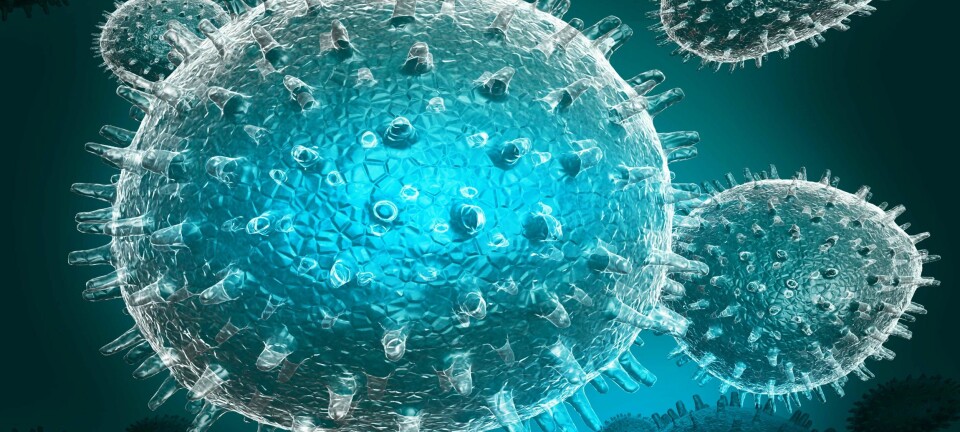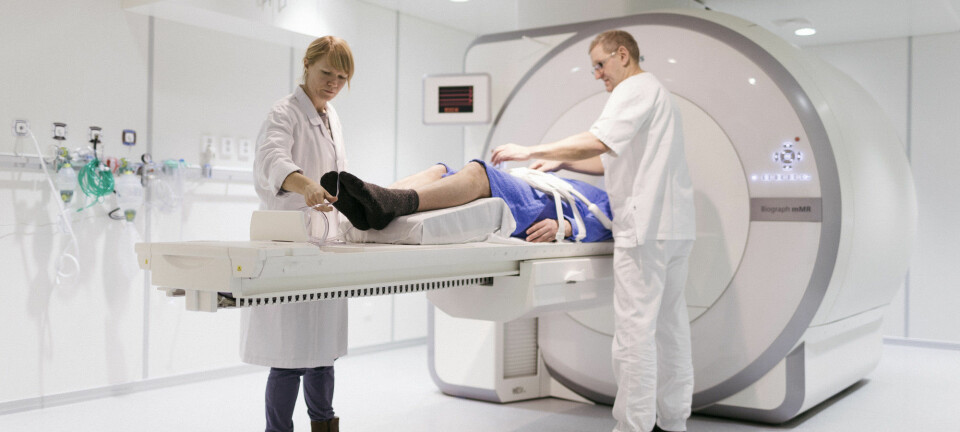
Scientists are getting closer to the origins of prostate cancer
New study uncovers even more genetic flaws that increase risk of prostate cancer.
An international group of scientists have discovered 23 genetic flaws that cause an increased risk of developing prostate cancer.
This means that 33 per cent of the genetic variations that cause prostate cancer now can be explained.
Last year the research group, an international collaboration of 33 groups -- with participation from Denmark -- described 77 causes of the disease and with the new addition, a total of 100 causes of an increased risk of prostate cancer are now known.
This is a huge breakthrough, says Dr. Andreas Røder from the Copenhagen Prostate Cancer Centre at Rigshopsitalet - Copenhagen University Hospital, who is one of the Danish scientists behind the new discovery.
“The fact that we can now identify 100 genetic flaws, each of which increase the risk of developing prostate cancer is ground breaking,” he says. “This basic bit of scientific work is vital if we are to have any hope of one day understanding the disease and identifying men in a special risk group likely to develop prostate cancer.”
Approximately 1,100 Danish men die from prostate cancer every year. Some 4,000 new occurrences are discovered every year and over the past ten years the number of men with the disease has increased explosively.
This makes prostate cancer the most common cause of cancer among men in Denmark.
Every genetic flaw only slightly increases the risk
The scientists found the 100 genetic ‘flaws’ that increase the risk of getting prostate cancer by comparing the genomes of men with prostate cancer the genomes of healthy men in a control group.
This enabled them to determine which genetic variants might be related to an increased risk of developing the disease.
If one genetic variant was overrepresented among the men with prostate cancer, the scientists concluded that there had to be a link.
Each genetic variant only increase the risk of developing prostate cancer by a couple of per cent, which is why the scientists have had to include almost 90,000 men, including 1,300 Danish men with prostate cancer in their study in order to find the genetic flaws.
“As of now it’s not possible to use genetic studies as screening tools, since it is not beneficial to screen all men and tell them that they potentially have a six per cent enhanced risk of developing prostate cancer,” says Røder.
“But before we reach the point where we can identify men with an enhanced risk of developing serious prostate cancer, we need to understand the underlying hereditary factors. In this regard, the study represents a large step in the right direction,” he says.
Study includes other ethnic groups
Another aspect of the new study is that the scientists looked for the genetic causes in not only European men but also African and Asian men.
This gives an insight into how prostate cancer may have different genetic sources across different ethnic backgrounds.
In the long term this too could make an important contribution to our understanding of the disease, says Røder.
“Generally speaking there is talk of an important discovery every time we uncover something new regarding genetic factors that increase the risk of getting prostate cancer. For this reason, we’re extremely enthusiastic about the new result which is a necessary step in the direction of a better understanding of the mechanisms of the disease,” he says.
-------------------
Read the original story in Danish on Videnskab.dk
Translated by: Hugh Matthews











